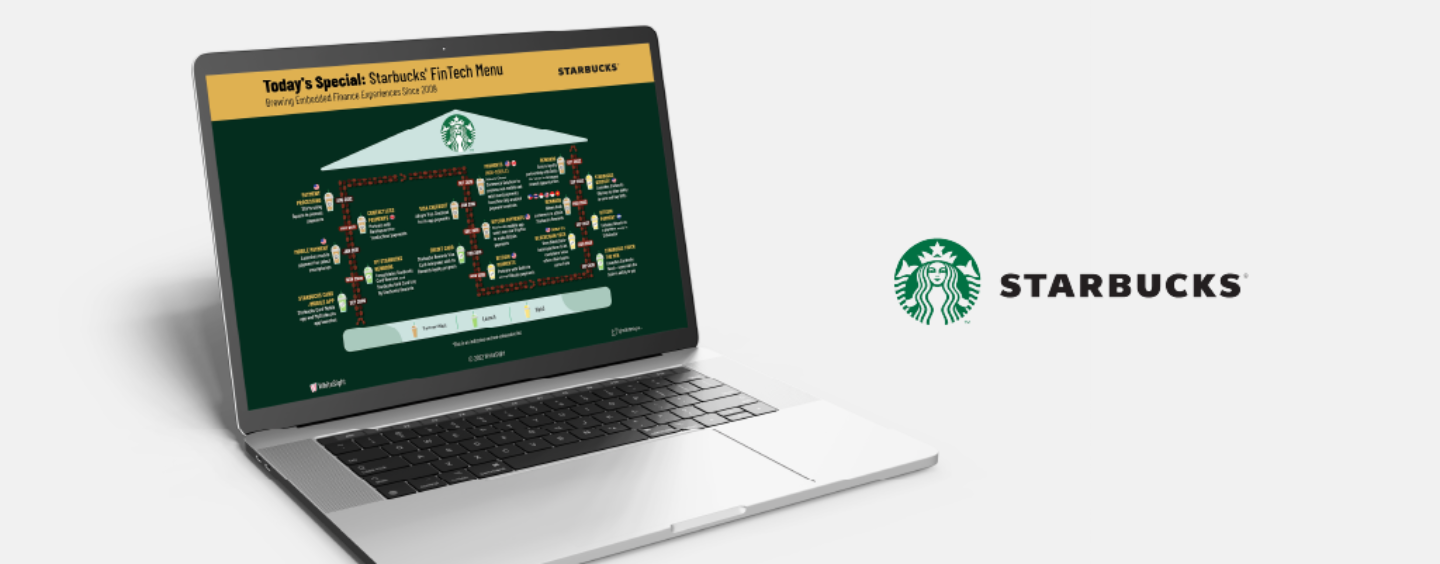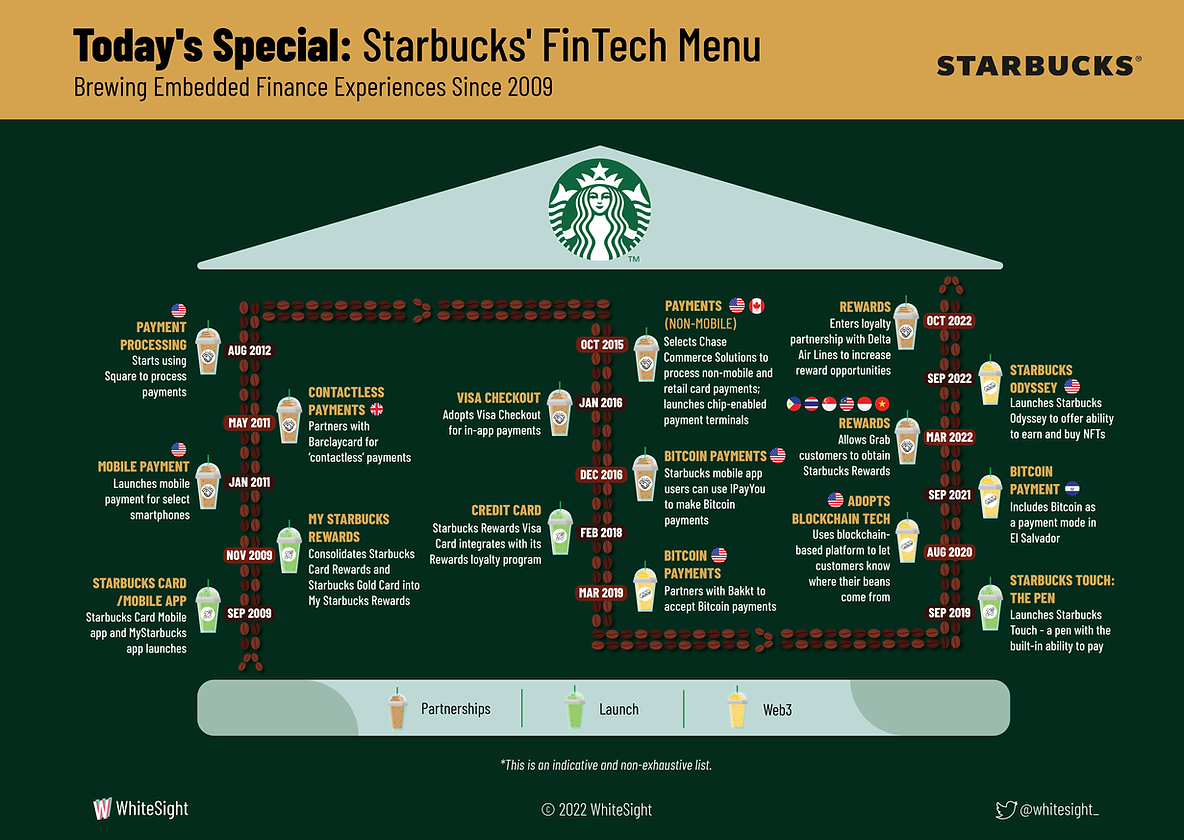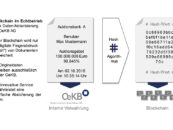
Starbucks Taps Embedded Finance to Improve Customer Experience and Increase Retention
by Fintechnews Switzerland January 17, 2023Starbucks, an American multinational chain of coffeehouses and roastery reserves, has been dipping its toes into fintech for a while now, leveraging embedded finance to craft superior customer experiences and build loyalty, a new analysis by fintech-focused research firm WhiteSight shows.
The report, which delves into the firm’s fintech moves, reveals that Starbucks has embraced a variety of embedding financial and lifestyle products to extend customer engagement. These products range from mobile payments, stored value cards, gift cards and reward programs, to wearable payments, bitcoin payments and digital collectables.
According to the report, Starbucks’ fintech moves have been centered around strengthening its rewards system and loyalty program. By leveraging embedding finance products, Starbucks has maximize personalization, drive brand growth and outpace its competitors and banks in deepening customer relationships, it says.
Starbucks’ fintech journey
Starbucks formally started its fintech journey back in 2001 with the introduction of the Starbucks Card, a program that allows users to preload money into an account for later purchases. This was followed a few years later by the launch of its Starbucks Card rewards program.
In 2009, Starbucks consolidated the two concepts to form My Starbucks Rewards and launched, in tandem, the Starbucks Card Mobile App. The Starbucks Card Mobile App is a mobile payment platform that allows users to load up money to their accounts, pay for purchases using their smartphone, check their balance and view transactions. This new app was aimed at improving convenience and user experience, the report notes. It provided the company with the necessary data to understand customer preferences and behaviors, and provide them with personalized rewards, driving thus retention.
From then and up until 2015, Starbucks focused on expanding its digital payment capabilities and achieving a more frictionless payment experience. This materialized with partnerships with banks, payment networks and fintech companies to enable contactless, mobile and online payments, and build customer loyalty.
Starbucks’ crypto moves
2016 was the year Starbucks started dipping its toes into cryptocurrencies and blockchain, announcing in December that users of its mobile app could now use IPayYou to make bitcoin payments.
In 2019, the company formally showcased its commitment to embracing blockchain, unveiling a collaboration with Microsoft to develop a blockchain-based supply chain tracking system and mobile app for customers to track the supply chain journey of the beans they buy and the coffee they drink. This was followed a few months later by a partnership with Bakkt, a crypto trading platform, to accept crypto payments.
2022 marked the start of Starbucks’ journey into the metaverse. Starbucks Odyssey, which was unveiled in September, aims to offer a new experience powered by Web3 technology, allowing Starbucks Rewards members and employees to earn and purchase digital collectible assets and use them to unlock access to new benefits and experiences.
Starbucks Odyssey was launched in beta in December, providing a small group of waitlist members in the US to participate in a series of interactive activities and earn non-fungible tokens (NFTs).
Reward and loyalty programs to boost retention
Starbucks Odyssey is an extension of Starbucks Rewards and seeks to help the company connect with its customers in new ways, the firm said in a statement, opening access to immersive experiences both physically and digitally.
According to Starbucks’ Q4 fiscal 2022 results, the Starbucks Rewards program had 28.7 million members in the US in November 2022, up 16% year-over-year (YoY). Starbucks Rewards members drove 55% of the company’s US operating revenue for its last quarter that ended in October, officials said.
Researches have shown that loyalty and reward programs are successfully helping organizations retain their most valuable customers and drive retention.
A Nielsen study found that 84% of customers were more willing to choose a retailer that runs a loyalty program. A separate study by Wise Marketer and the Maritz Motivation revealed that 82% of consumers who participated in points-based programs were more likely to purchase more often from these companies. 52% agreed that the chance to earn points influenced them to ignore offers from competitor brands.
Featured image credit from Freepik






